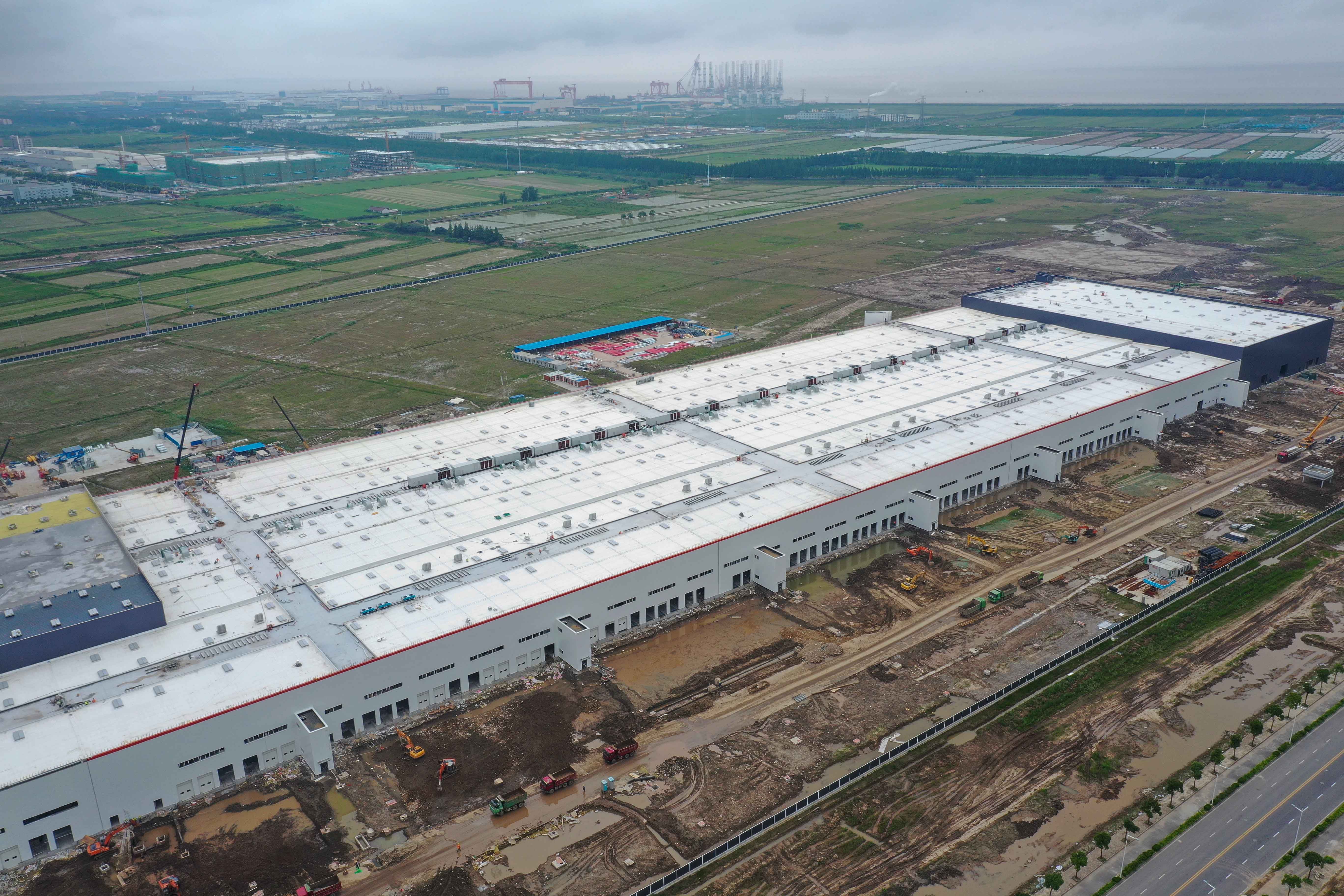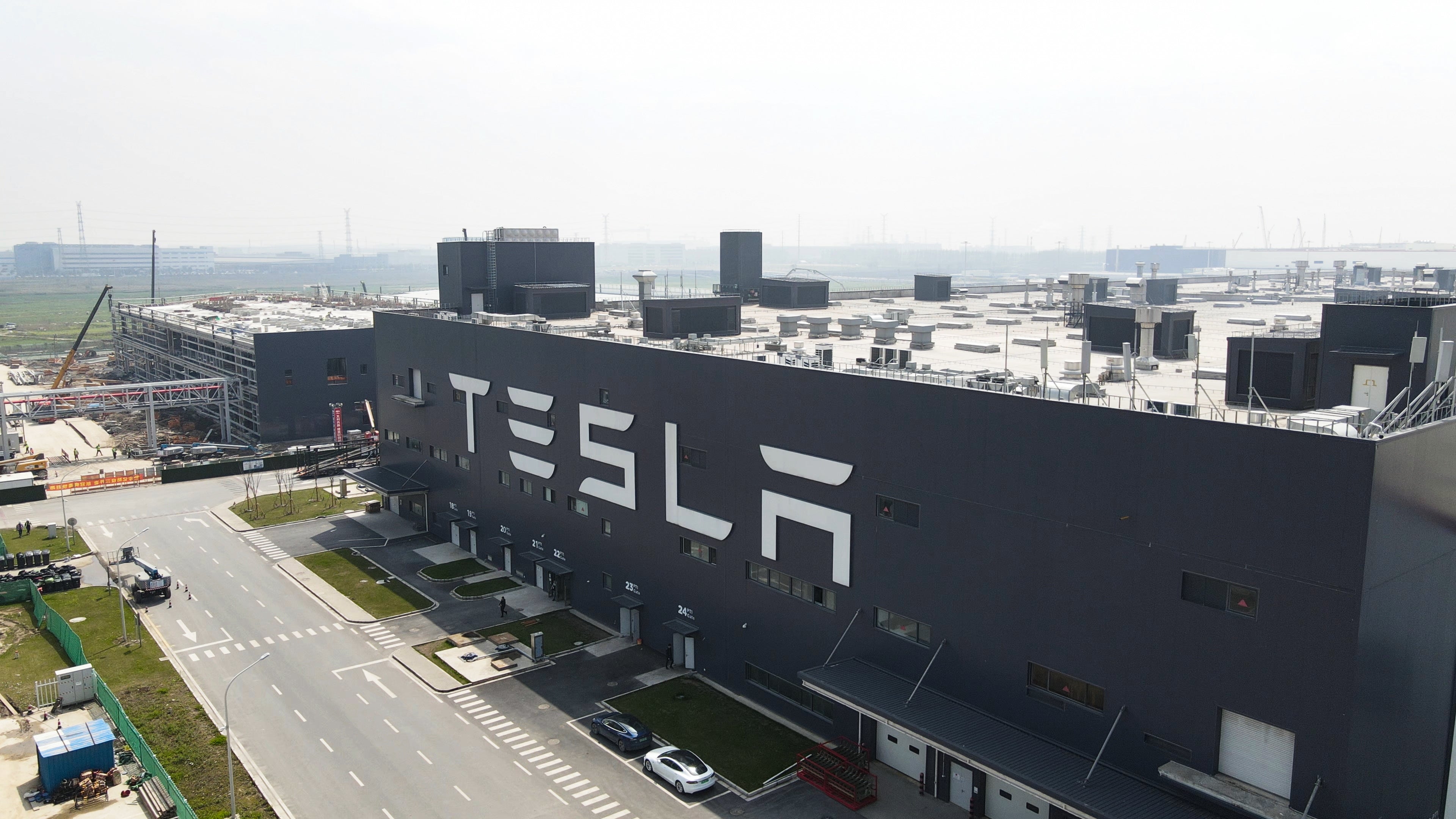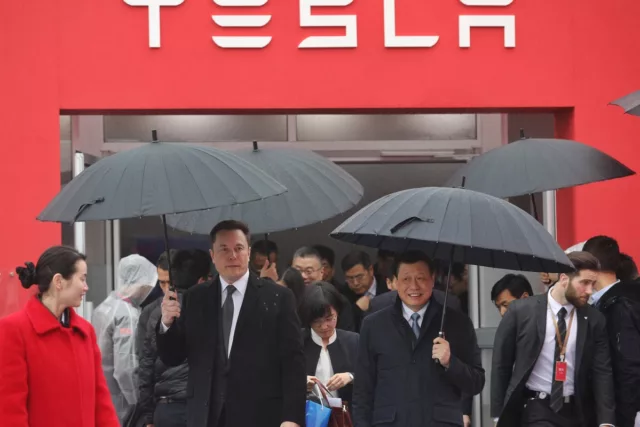In January 2019, Elon Musk stood shoulder to shoulder with Chinese officials to ceremonially open the construction of Tesla’s new Shanghai «gigafactory».
Six years later, that same factory is estimated to produce more than half of the roughly 1.8 million electric vehicles that Tesla sells annually across the world, underpinning Tesla’s share price and its CEO’s position as the richest person in the world.
So what would happen if China’s ruling Communist Party — which is currently locked in a trade war with Musk’s close «buddy» Donald Trump, and is just as willing as him to punish foreign companies in pursuit of geopolitical goals — decided to shut it all down?
«I mean, it’s f***ed,» Prescott Watson, a venture capitalist specializing in electric transport tells The Independent.
«Tesla sales basically go off a cliff by 50 percent overnight… its ability to actually power vehicles built in the U.S. and Europe may go down by a quarter or half. And if you don’t have the power, you can’t really build the vehicles.»
To be clear, China’s government has not threatened anything so drastic. That is simply the worst case scenario in a country that has not only shut down foreign companies in the past but also punished Chinese tech barons — such as Alibaba founder Jack Ma — who crossed the Party.
Tesla’s reliance on China gives Chinese officials a potentially vast degree of leverage over one of Trump’s key financial backers and advisers, who has spent the last four months spearheading an allegedly unconstitutional gutting of federal agencies.
And although Musk has said he will be stepping back from his role at DOGE after the end of May, he’s given mixed signals about the extent of his future involvement — to say nothing of his informal influence over the US President.
‘Elon owes a hell of a lot to the Chinese’
When Tesla first broke ground on its Shanghai factory, the company was still struggling to scale up its manufacturing after a period of «production hell».
China’s manufacturing prowess offered a solution. «It’s what allowed Tesla to grow so quickly,” Watson explains. “Because unlike any country in the West you can just build a factory in one year and then have it producing a million vehicles a year 24 months later. It’s unbelievable how much better the Chinese are at doing this kind of stuff.»
Meanwhile, China was in the middle of a nationwide push to become the world leader in electric vehicles. It was, as Shanghai-based auto industry consultant Bill Russo explains, a match made in heaven.

«Tesla is a fast horse that if you allow them to race with the Chinese companies, the Chinese companies will race faster,» Russo tells The Independent. «They let [Musk] in. They built the racetrack for him.»
Working with then Shanghai party secretary Li Qiang, who is now the third most senior minister in the whole country, Musk secured an unprecedented deal that allowed Tesla to retain 100 percent ownership of its factory rather than setting up a joint venture with a local company.
The result was a massive Chinese EV boom that benefited both Tesla and the Chinese EV industry, creating what is now easily the world’s largest EV market. Tesla has been asked for comment for this story but not yet responded.
By 2024, Tesla was not only selling nearly 37 percent of its cars to Chinese customers but manufacturing hundreds of thousands of export models in Shanghai. This February it also opened a high-end battery plant to fuel its industrial energy storage business, Megapack.
«Elon owes a hell of a lot to the Chinese,» says Watson, who remembers visiting Tesla’s San Francisco area factory in 2018 and finding it «very disorganized».
«China has gone from nothing, to important, to critical for Tesla,” he added.
That dependence has only deepened with time. According to Watson, Tesla has now largely switched from NCA batteries to LFP batteries, which were popularized by Chinese companies and are mostly manufactured in China.
Even a temporary closure in 2022 due to Covid-19 outbreaks caused what Musk described as a «tough quarter» and an 18 percent drop in vehicle deliveries.

Moreover, other countries’ governments — and their consumers — have begun to treat Tesla more sceptically due to Musk’s attachment to Donald Trump and his incendiary interventions in foreign politics.
Canada is reportedly targeting Musk’s satellite internet business Starlink, while German chancellor Friedrich Merz suggested on the campaign trail that there might be «consequences» for Tesla’s Berlin gigafactory.
«[Musk] needs to hold on to his China business,” says Russo. “He can’t afford to have happen in China what’s happened everywhere else for him.”
Yet both sides need each other
China’s government has never been shy about cracking down on corporations. Consider the travails of Jack Ma, the outspoken founder of Alibaba — China’s equivalent of Amazon — and the digital payments company Ant Group.
Ma was considered one of the leading lights of China’s tech industry when, days before Ant Group’s stock market debut in October 2020, he gave a speech at a business summit accusing regulators of stifling innovation with a «pawn shop» mentality.
Officials were reportedly furious, and swiftly blocked the stock market float as well as investigating Ant. Ma all but vanished from public life for the next three years, until finally he reduced his control of the company.
Today, China is reportedly targeting various U.S. companies in response to Trump’s trade war with export controls, investigations, blacklists and other tools. Tesla itself is still awaiting regulatory approval for its «full self-driving» feature, which officials have reportedly considered using as a bargaining chip.
Yet according to Russo, China is actually unlikely to bring down the hammer on Tesla — because officials need Musk almost as much as Musk needs them.
«To be considered open for business, China needs Tesla,» Russo says. «They need examples of [foreign] companies that can still be successful in that market… and Tesla is probably the most obvious example.»
Indeed, at a meeting with US-linked companies including Tesla last month, China’s minister of commerce pledged to «protect» foreign businesses and to keep the country as an «ideal, safe, and promising ground for foreign investors».
Whether through carrot or stick, Chinese officials reportedly see Musk as a crucial ally in the trade war — and a potential backchannel into the White House. The country’s vice president Han Zheng met with Musk just before Trump’s inauguration, and TikTok’s CEO has also sought counsel from him.
«If you were a country boss and you had the effective US president beholden to you, wouldn’t you use that in some way? And wouldn’t Elon?» says Anne Stevenson-Yang, a financial analyst with the activist investment firm J Capital Research who lived in China for 24 years.
Russo likewise says he would be «surprised» if Chinese officials had not already attempted to use Musk as a go-between to «de-escalate the trade war».
According to one report, Musk has already been in regular contact with Vladimir Putin about the war in Ukraine since 2022, so the idea is hardly implausible.
We obviously can’t know what has been happening in private. But Musk has publicly criticized tariffs, and reportedly tried in private to persuade Trump away from them. He has also openly feuded with Trump’s pro-tariff trade advisor Peter Navarro, declaring him «a moron» and «dumber than a sack of bricks».
All of which has led some to argue that Musk’s closeness to China makes him a potential security risk, potentially beholden to a foreign government.
«If Elon were not so critical to US policy, they would have nationalized that company ages ago,» says Stevenson-Yang.









